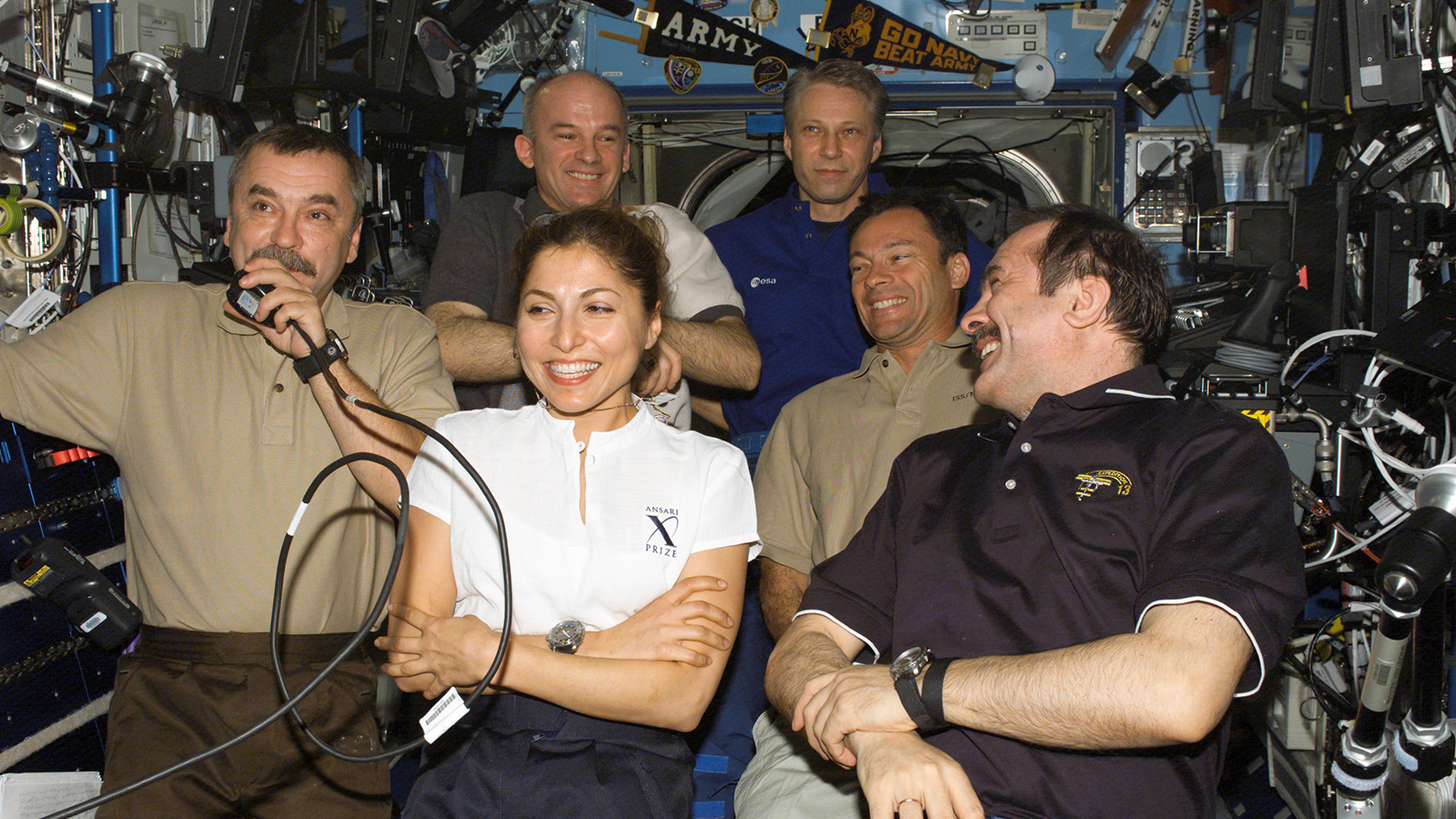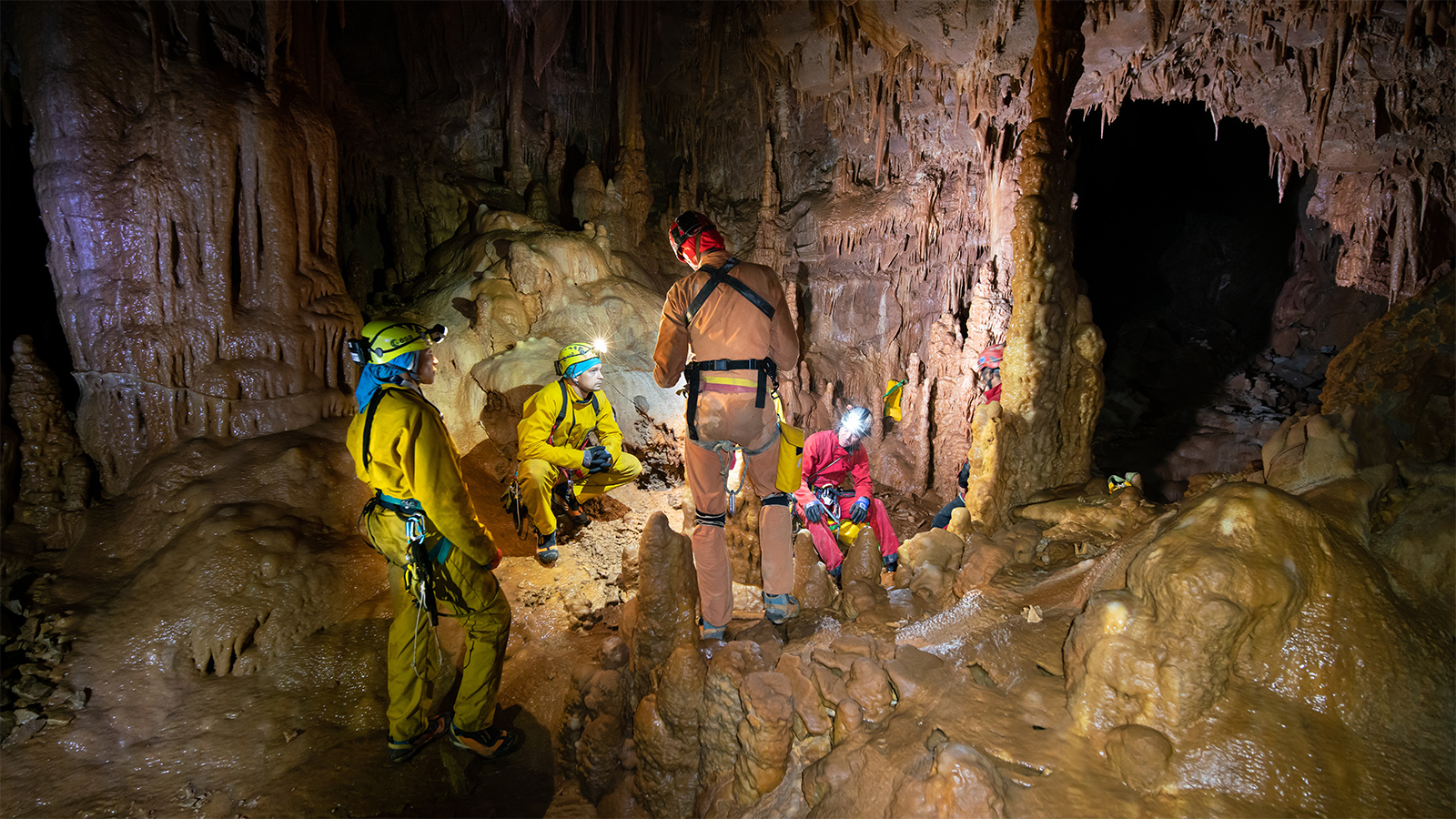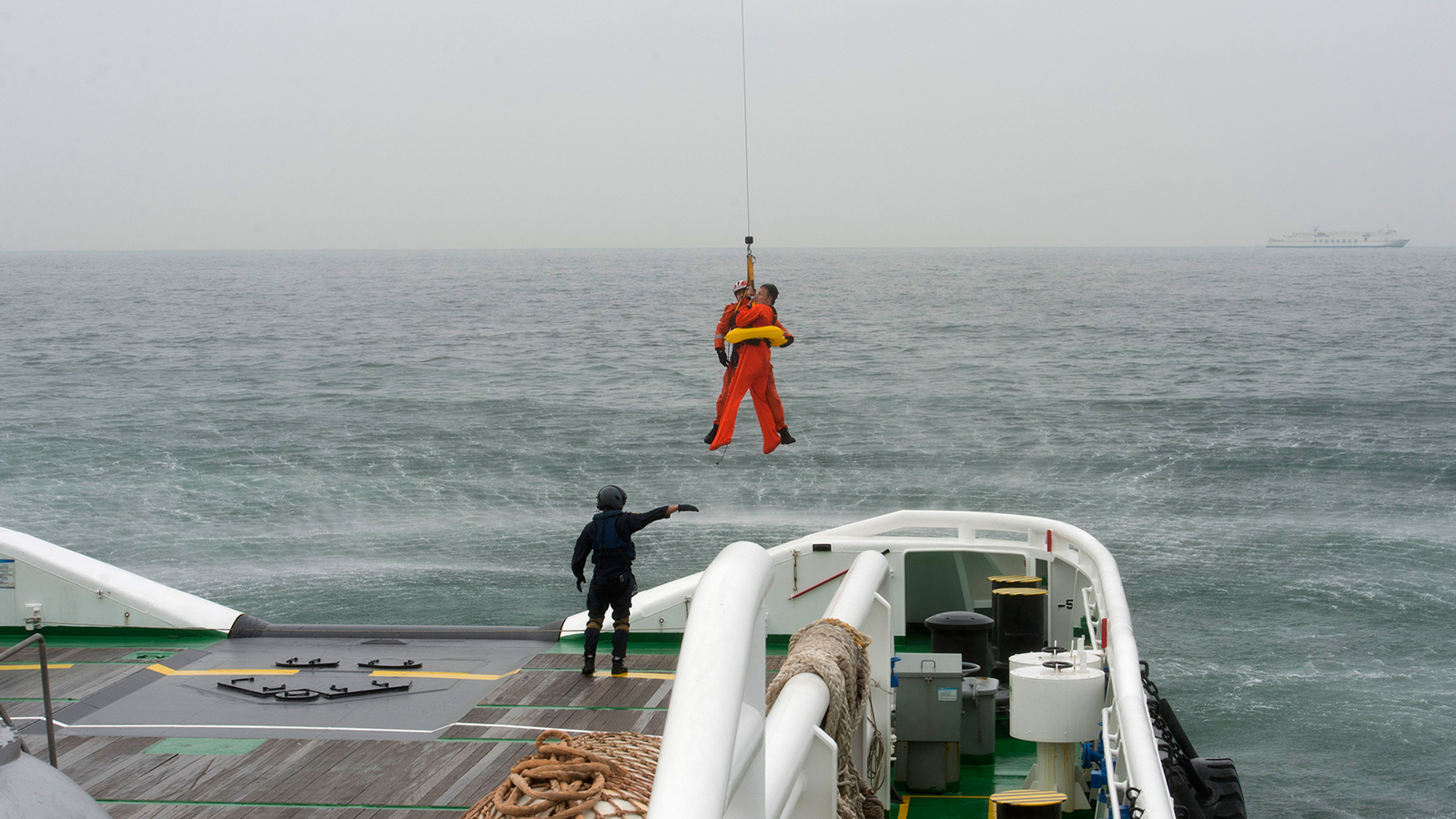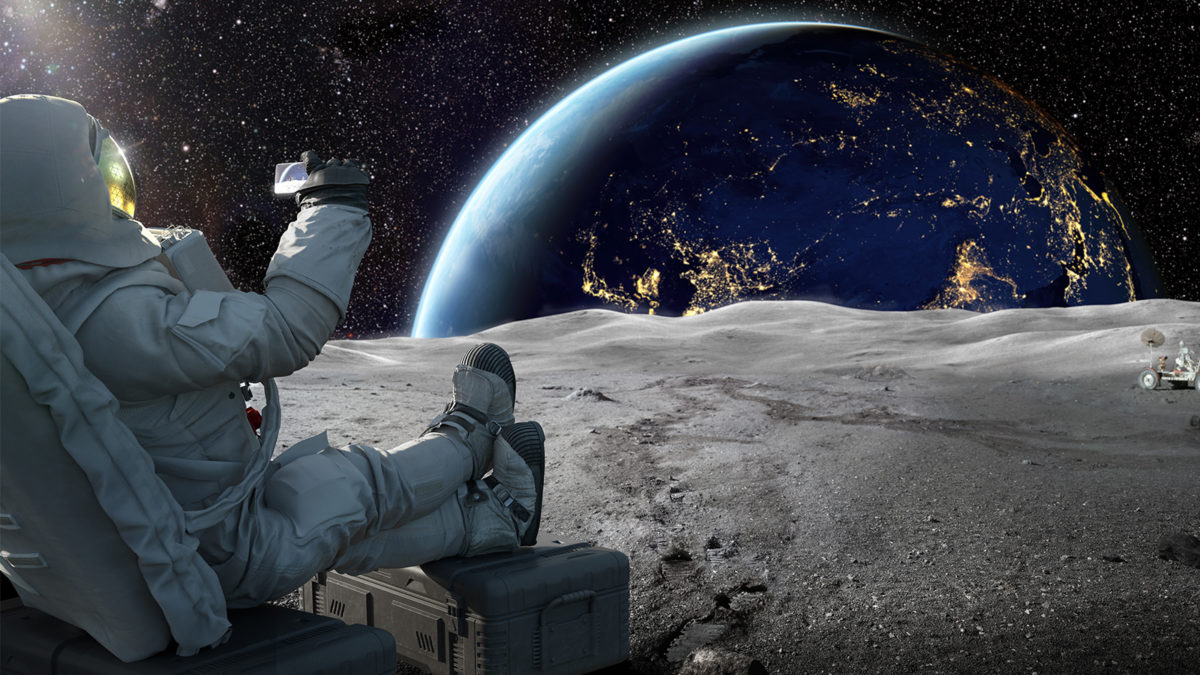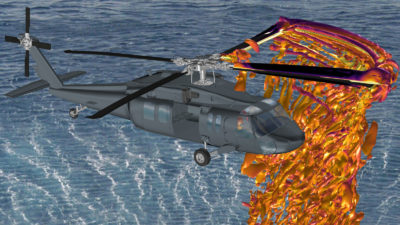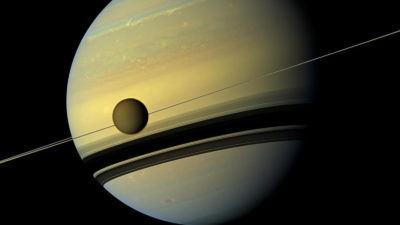Putting our minds to space travel
By Sarah Wells|January 2021
Virgin Galactic is getting ready to send its first paying customers to the fringes of space. NASA and European space leaders are talking about establishing a Moon Village for scientists, miners and tourists. Elon Musk famously wants to establish colonies on Mars. What kind of psychological training will people need for these and other bold endeavors? Sarah Wells spoke to psychologists and a space travel veteran to find out.
As the rockets underneath the Soyuz TMA-9 capsule began to warm and hum in anticipation of liftoff, Anousheh Ansari remembers feeling eerily calm. It wasn’t until the capsule had torn through Earth’s atmosphere and reached orbit that Ansari began to cry.
“It was overwhelming and a rush of emotions — excitement, extreme joy and wonder took over — and I went from crying to laughing to crying to laughing.”
Unlike the cosmonaut crewmates grasping her hands during liftoff, Ansari, who is now the CEO of X-Prize Foundation, had not spent years training for her flight. She made the journey to the International Space Station in 2006 after just six months of training and securing a $20 million ticket. She was the world’s fourth “space tourist.”
At the time, Ansari’s and other missions in the early 2000s looked like the start of a bright future for space tourism, but 14 years later that dream has yet to come to fruition, due in part to technical setbacks.
Now, suborbital flight companies Blue Origin and Virgin Galactic are closing in on sending the first paying customers on jaunts to the fringes of space, developments that could serve as a springboard to even bolder space tourism endeavors, such as the orbital tourism plans of SpaceX and Axiom Space.
Courage and money alone are not all that these pioneering space tourists will need for these first flights and the journeys to orbit and deep space that could follow. They’ll need varying degrees of psychological preparation not only for safety but to get the most out of the hundreds of thousands of dollars they’ll spend on the experience.
“Psychological adjustment in many ways is harder to identify and can be something that people try to keep to themselves,” says space psychologist Raphael Rose, associate director of the Anxiety and Depression Research Center at the University of California, Los Angeles. For space travel, “psychological and physical preparedness are equally important,” he says.
Stressors
With the chance to visit space — or even just graze the top of Earth’s atmosphere — comes an opportunity many wait a lifetime for, though the experience won’t be without its mental challenges.
For professional astronauts, such as the astronaut corps of NASA and the European Space Agency, tension can spring from the pressure to complete mission tasks as well as the reality of being confined in a cramped space with others for extended periods.
Astronauts sometimes release tension in the form of terse exchanges with ground control as a tactic to avert tension with fellow crew members during missions that can run days, weeks or months, says psychiatrist Nick Kanas, who has spent decades studying the impacts of spaceflight for NASA, and is now an emeritus professor of psychiatry at the University of California, San Francisco.
For tourists on suborbital flights, Kanas expects that kind of tension to be minimal to nonexistent, given the brevity of the experiences. Blue Origin’s proposed time in the capsule will clock in at 41 minutes, including 30 minutes of boarding time and four minutes of weightlessness, while Virgin Galactic’s is approximately 1.5 hours with a similar amount of weightless time. At its worst, customers might feel like they are stuck in an elevator with work colleagues for an hour. This is a discomfort that Kanas suggests could be easily tolerated.
That said, with customers paying up to $250,000 for the experience of weightlessness and the view of Earth from an altitude of about 100 kilometers, a wild card remains the reactions of those customers should a mission not unfold exactly as planned. For example, last month’s Virgin Galactic suborbital test flight was cut short moments after the release of the VSS Unity spaceplane from the WhiteKnightTwo carrier aircraft, when Unity’s flight computer lost its data connection to its hybrid rocket motor, prompting the computer to end the ignition sequence. The two pilots maneuvered Unity for a glided landing at Spaceport America in New Mexico.
Ideally, customers would be prepared enough through their training programs to adapt to any changing circumstances, but Kanas says that there’s always a risk — albeit rare — in space travel of having a negative reaction.
“You’re worried about somebody reacting with maybe palpitations or heart pressures, a heart attack of some kind or stroke [or] becoming acutely psychotic,” says Kanas. However, these are concerns associated more with orbital flights, which are further from reality, and are conditions that would hopefully be discovered by a psychological screening before the customer ever left Earth.
Also, tourists won’t have the stress of operating the vehicle. Rather, they’ll have to be comfortable trusting their fates to automated software. Unlike Ansari, who was involved in the ascent and descent procedure of her flight and completed science experiments on the ISS, suborbital tourists will just be along for the ride. Blue Origin’s New Shepard suborbital rocket and capsule would complete flights autonomously, and instead of pilots onboard with passengers, ground controllers would intervene should the need arise. For a slightly more human touch, Virgin Galactic’s Unity will be operated by two professional pilots.
Orbital experiences would be a different matter. Such flights would not necessarily take tourists much higher than suborbital flights, but by going faster, 28,000 kilometers per hour versus 6,000 kph for suborbital flights, orbit could be maintained for days or weeks. Customers on those flights may include academics or visiting scientists who, like Ansari, would have a little more work to do when they’ve reached their final destination, such as Axiom Space’s proposed space station.
Kanas is still not too concerned about the mental impact of these longer flights, but he does stress that mental preparation — in addition to physical preparation — will be even more important during such flights to ensure tourists remain calm for the duration.
Mentally training
As far as I could learn, orbital tourism companies do not yet have concrete training plans, although Space Adventures, the spaceflight company that will run SpaceX’s orbital tourism programs, does say its training will likely be a few weeks long, and Axiom Space estimates its at 15 weeks. Kanas speculates that these programs may be scaled back versions of what NASA astronauts experience before flying to the ISS.
Tom Jones, a former NASA astronaut who spent a total of 53 days in space, tells me that when he was training for his space shuttle flights in the mid-1990s the crew spent extensive time training together in stress-inducing scenarios, like wilderness exploration, in order to learn how to work together in trying times.
“If you find out somebody has the personality where they become self-centered or withdrawn, it’s important to find that out back here on Earth in an analog situation so that you don’t send the person up to space for six months where they make life miserable for everybody else,” says Jones.
This preparation is why in the past 20 years of sending astronauts to ISS, the number of times an astronaut has exhibited such behavior can be counted on one hand.
A modified version of this NASA training might last a matter of weeks, just as Space Adventures and Axiom are planning. Training for suborbital flights would be much shorter. Virgin Galactic and Blue Origin have both clocked their training programs between two and three days. The exact preparation of each program varies but generally includes physical training in the form of zero-gravity experiences and familiarization with the cabin and automated procedures.
Virgin Galactic also plans to give its customers comprehensive medical evaluations to identify vulnerabilities that might put them or others at risk during the flight, which may include conditions like claustrophobia or poor stress management. But whether these conditions would ultimately disqualify tourists from flying is not yet certain.
Kanas speculates that space tourism companies will have softer guidelines when it comes to psychological screening than do government space programs. Instead of potentially grounding someone with bipolar disorder because they may have had a manic episode in the past, Kanas suggests that participants with otherwise disqualifying psychological disorders could be given care plans to follow that would ensure their safety and that of others on the excursion.
As a result, Kanas believes the risk of seriously causing harm to fellow tourists out of ignorance of zero-gravity procedures or poor stress management is unlikely for short suborbital flights.
If a passenger were to go rogue and attempt to, for example, pry open the spacecraft door, those actions still won’t put other tourists in harm’s way. Virgin Galactic tells me that because of pressure created against the spacecraft’s plug door, the term also applied to the doors on commercial airliners, it isn’t possible to open the spacecraft midflight.
Beyond orbital flight
Space tourists in the next five to 10 years will not be straying too far from home, but if the plans of government leaders and entrepreneurs come to fruition over the next 20, 50 or 100 years, the space tourism playground would expand far beyond Earth’s orbit. Both ESA and NASA have announced their concepts for establishing a Moon Village in the next decade that would function as a mining base and potential tourist destination, and — who knows? — maybe 200 years from now as a retirement destination for those who want to try low-gravity golf. In the far term, Elon Musk tweets regularly about establishing colonies on Mars with transportation provided by his Starship spacecraft, versions of which SpaceX engineers are building and flying at the company’s test site in Boca Chica, Texas.
And while today’s space tourists are unlikely to experience much psychological distress on their short trips, with longer flights such as a seven-month journey to Mars comes the heightened risk for negative psychological effects, such as depression, as a result of extended social isolation and loneliness, explains space psychologist Rose. For the past 12 years, Rose has conducted research with NASA on stress, resilience and behavioral health and is principal investigator on two ongoing NASA projects, one titled “Asynchronous Behavioral Health Treatment Techniques.”
Developing a therapeutic plan that can work even with the communications latency of deep space will be crucial for the well-being of these explorers, says Rose.
“We developed a stress management resilience training program that autonomously trains people to develop a tool set of skills they can use to deal with stressful situations,” explains Rose. He defines resilience as “a rebound and recovery” from stress, “not an elimination of stress.”
During these longer trips, Rose says individuals must be provided with tactics for managing their own stress when professional counselors can’t be on hand to help. Crew bonding activities will help, but connections must somehow be maintained with family and friends, perhaps through memories, when communications with Earth become intermittent.
“Thinking about their family or other things in their community that provide meaning to them can help them feel more connected,” Rose says.
Rose imagines that someday artificial intelligence and virtual reality software might simulate a traveler’s home and generate realistic and interactive projections of loved ones that they could communicate with. Solutions like this won’t eradicate the potential stress of the situation, but they can provide a better way to cope with it.
“Stressful reactions to stressful situations is expected,” says Rose. “There isn’t a magical way to do something that’s challenging and not feel stress — that’s not a bad sign. It’s more about how you cope with these situations that make a difference.”
Positive effects of space travel
Space tourists who have paid hundreds of thousands of dollars for a once-in-a-lifetime experience will likely want to maximize the positive psychological effects of this foray to space. In fact, Loretta Whitesides, the wife of Virgin Galactic Chief Space Officer George T. Whitesides and author of the book “The New Right Stuff: Using Space to Bring out the Best in You,” believes that someone who pays to go to space can return a new person. Whitesides herself is a “founder astronaut” at Virgin Galactic, meaning she will be one of the first several participants to ride in Unity when commercial service begins.
In her space training and consultation program, SpaceKind, Whitesides coaches space industry professionals about how to embrace vulnerability, humility and integrity in order to bring their best selves to their future space travels. Whitesides believes that leaving your personal baggage at home is crucial to fully experiencing the beauty of space and the fragility of Earth. Astronauts have widely described looking down on Earth as a spiritual and unique experience that transformed them into more charitable versions of themselves upon return.
This “overview effect” is something that Ansari and Jones both say they experienced during their travels.
“Being in space has made me feel the interconnectedness of us human beings with each other and our planet,” says Ansari. “As the world shrunk in front of my eyes in my ascent to orbit, so did the problems of the world. This new perspective has made me more hopeful than ever that we can solve the problems that seem so big and overwhelming.”
In the future, Kanas muses that the overview effect may even be prescribed as a form of treatment for Earthly ennui, similar to a therapeutic retreat today.
Whitesides believes that creating the right mindset for space travelers to receive this experience can enable space tourists, professional astronauts and everyone in between to return home with a new mission to be more generous on both a personal and community level.
SpaceKind is not likely to be mandatory for space tourists, says Whitesides, but she believes that programs like these could be offered as a la carte options that tourists can choose to take for their own benefit.
“Most of them are so passionate about space — like a lot of my fellow ‘future astronauts’ at Virgin Galactic [who do extra training] because that’s what we like to do,” says Whitesides. “I’m counting on the customers to go even beyond what’s required.”
Where we are now
When it comes to preparing future space tourists for the mental and physical rigor of spaceflight, Kanas and Rose say that the No. 1 mindset that must be imparted on trainees is a sense of familiarity with the spacecraft and mission plan, as well as assurance of its safety.
This is something that Virgin Galactic is focusing on heavily in its Astronaut Readiness Program in which its ticketed future astronauts will gain detailed information about Unity, even down to its sounds and smells. Separate from SpaceKind, this three-day program was announced in 2019 and is led by former NASA engineer Beth Moses.
The company also announced a contract with NASA last year to develop a separate “private orbital astronaut readiness program” to help NASA meet its goal of increasing commercial use of the ISS by finding and training private spaceflight participants.
Ultimately, says Kanas, regardless of what these training programs entail, this industry is going to continue expanding. Where space travel exists, there will never be a shortage of space tourists.
“There’s always some population that’s willing to do anything, so I don’t think that’s going to slow down things,” says Kanas. He says it is more a question of “the technology of getting this thing up safely and get it back down again.”
Staff reporter Cat Hofacker contributed to this report.
Related Topics
Human Spaceflight